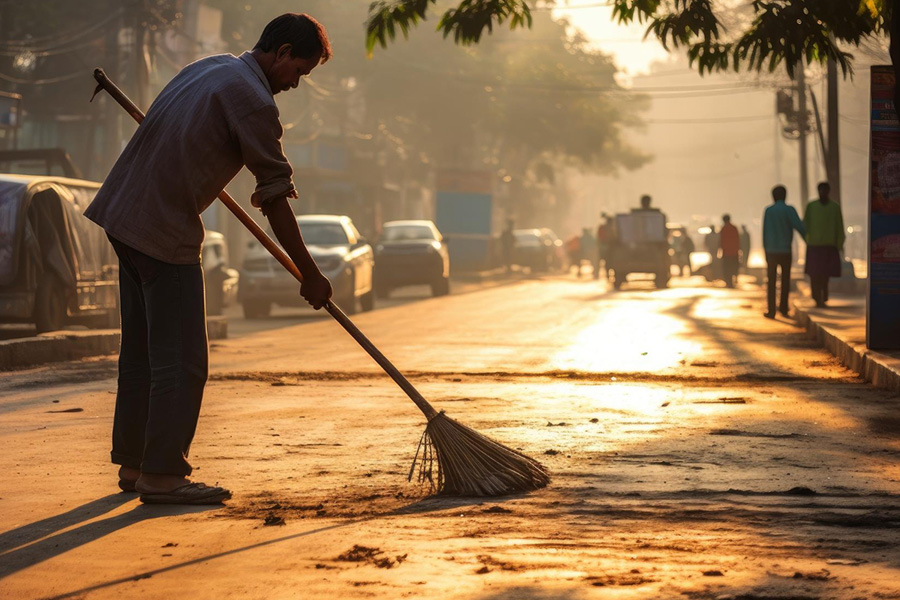
This study highlights the vulnerability of sanitation workers in Guwahati’s slums, emphasizing the need to address their multidimensional poverty and redefine ecosystem services.
Authors
Ashika Thomas, London School of Economics and Political Science, London, United Kingdom.
Sakshi Chindaliya, Assistant Lecturer, Jindal School of Liberal Arts and Humanities, O.P. Jindal Global University, Sonipat, Haryana, India.
Deepanshu Mohan, Professor of Practice, Jindal School of Liberal Arts and Humanities; Centre for New Economics Studies, Jindal School of Liberal Arts and Humanities, O.P. Jindal Global University, Sonipat, India.
Rishiraj Sen, Indian Institute of Management, Ahmedabad, India.
Summary
Post the devastating floods of Assam in 2022, a team of ethnographers took to the streets of the capital city Guwahati to explore the turbulent hydro-social dynamics. This paper is a documentation of the hidden narrative of sanitation workers in the slums of Guwahati; a community doomed to cater to the needs of the urban collective over their own. It delves into the nuances of caste and gender dimensions that govern the fragile livelihoods of the community most vulnerable to floods in the region—safai karamcharis.
The study explores the undertones of informality in a formal work set-up and the cyclical nature of the annual disaster. The observations and analysis from this project add to (Coulthard et al. in Ecosystem Services and Poverty Alleviation: Trade-offs and Governance, Routledge, 2018) Multidimensionality of Poverty by expanding the definition of ecosystem services and its implications at the community level.
Published in: Pan-India Stories of Informal Workers During Covid-19 Pandemic
To read the full chapter, please click here.

